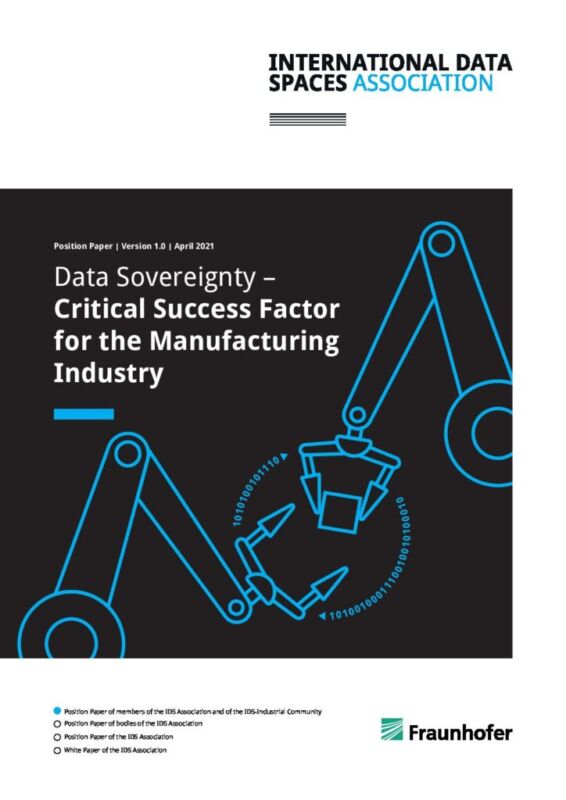The IDSA position paper ‘Data Sovereignty – Critical Success Factor for the Manufacturing Industry’ describes how data sovereignty and its main concepts support the manufacturing industry to keep competitive advantages, to fulfill customers’ requirements better, to increase the Overall Equipment Effectiveness (OEE), to create and implement new and future-orientated business models and services with the trusted use of more data that is available today.
Industrie 4.0 creates new opportunities for manufacturers
In an increasingly competitive global landscape, manufacturing companies are seeking to improve their operations and strategic positioning. This means reducing costs, improving quality, and at the same time being flexible and agile to meet customers’ needs. Industrie 4.0 is bringing new opportunities in this field. Focus areas for manufacturing companies include:
- Collaboration with customers, suppliers, and service providers to improve supply chain visibility, work together on the design, engineering, manufacturing, support, and logistic challenges.
- Modular and more flexible manufacturing with many industries changing from mass-production to mass-customization and even custom-made production.
- Improvement of quality and lowering of maintenance costs by the collection, aggregation, and analysis of data.
Trust in data sharing
The basis for new collaborations is the sharing of data between different participants. Imagine a scalable technology existed, where all parties in a network could work effectively together in a secure, standardized, certified, and trusted environment. For example, a manufacturing company would replace a supplier with another supplier with a better service on the fly and data could be easily shared between the two parties in a secure manner directly from the beginning of the collaboration.
International Data Spaces (IDS) enable the exchange of data between parties in one trusted and certified eco-system. The IDS reference architecture model describes the key concepts. Strategic requirements are the trust and security between partners in a data-centered ecosystem and the data sovereignty between them. Data remains decentral and is not copied into one central cloud environment or system. That is the basis for data sovereignty, which relates to both access control and usage control. The data owner does not only decide with whom, how long, and under which conditions he wants to share his data, he also controls the usage of the data, once it has been accessed.
Benefits of data exchange for the manufacturing industry
The opportunity of sharing data in a secure and sovereign manner supports the manufacturing industry in a variety of processes and segments. For example, data-centered business models and services: Manufacturers gain a better knowledge of their customers by sharing confidential data. Instead of selling the machine, they may operate the machine at the customer’s site and charge a usage fee. Or instead of selling a compressor, the manufacturer could sell compressed air of a certain quality and availability during the working day.
Join the IDS-Industrial Community
The industrial community of the IDSA, simply called IDS-I, considers how to apply IDS methods and technologies to the manufacturing domain in good cooperation with the concepts and specifications of the Platform Industrie 4.0. Interoperability here is key!
If you are interested in this topic, just download the IDS-I position paper “Data Sovereignty – Critical Success Factor for the Manufacturing Industry”.

And if you are even more interested and want to actively contribute, you are invited to join the IDS-I itself. Just send an e-mail with “register IDS-I” to info@internationaldataspaces.org.




